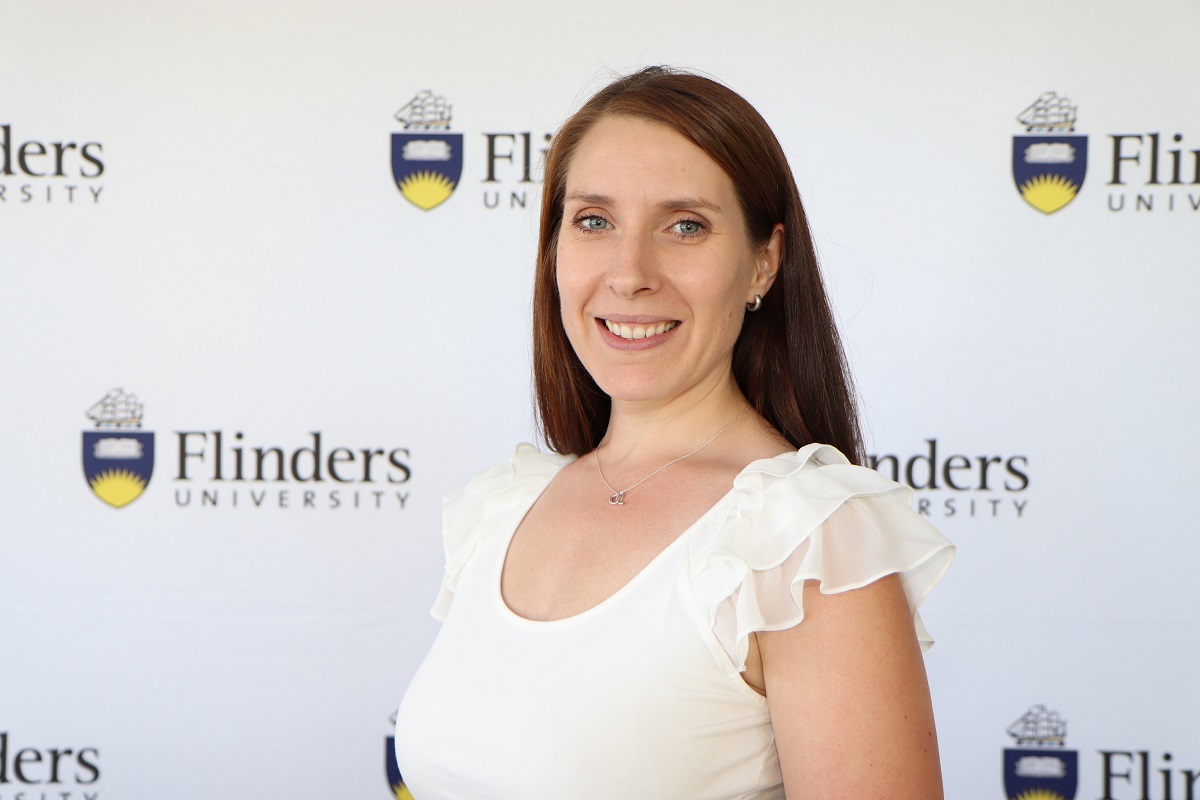
A free service being delivered through Flinders University’s Health2Go clinic aims to detect developmental delays and other health concerns in children attending childcare centres, in an exciting new initiative demonstrative of the Caring Futures Institute’s commitment to a healthy start to life.
The partnership with Goodstart Early Learning centres is being driven by nurse practitioner and lecturer Alicia Bell and Flinders Caring Futures Institute researcher Professor Lucy Chipchase, offering children from predominantly low socio-economic backgrounds screening for conditions such as autism.
Project lead Mrs Bell says the pilot program is helping detect potential problems in children who might otherwise wait months or years to get the help they need. It complements an existing paediatric nurse practitioner clinic offered through Health2Go.
“We’re often seeing children who can’t afford to go through the private sector,” Mrs Bell explains. “This means if they need to be assessed for autism, for example, they have a minimum 18 month wait.”
With the help of Flinders health students, the team is offering assessments to children between 0-5 years whom educators think could need additional supports, after gaining their parents’ consent. Students studying nutrition, dietetics, nursing and physiotherapy are working in teams to deliver the interprofessional service at the childcare centres.

“The educators identify that these kids aren’t tracking quite as they should developmentally, which is where we step in,” Mrs Bell says.
Using a Brigance developmental screening tool, the students can pinpoint the areas children are delayed. From asking standardised questions and conducting assessments which look at gross and fine motor skills, receptive and expressive language and social and emotional skills, scores for each developmental domain can be produced.
“We then assess whether we need to refer to a speech pathologist, a psychologist, an occupational therapist or if the child needs a full developmental assessment,” Mrs Bell says.
Professor Chipchase says the program is an excellent opportunity for Flinders students to develop real-world experience before they enter the workforce.
“Moving forward, it has the potential to transform health services across South Australia. We could see students providing a middle ground for people in the community who can’t access necessary healthcare. They can be part of the solution for people who clearly aren’t getting the help they need.”
The team is also providing children with Kudos referrals, to access early intervention funding through the NDIS. Thanks to a Nexus grant of nearly $10,000, the program is now offered through more than eight centres in the Adelaide metropolitan area.
“It also means I’ve been able to expand this service to one day a week instead of one day a fortnight,” Mrs Bell says.
Early indications suggest the service may have already identified gaps in care that need to be provided, Professor Chipchase says, raising the possibility of Flinders students of other disciplines becoming involved.
“We’re hoping the next step will be uplifting speech pathology, audiology and potentially optometry into the centres to expand our reach,” she says.
Feedback from the students on their experience will help evaluate the success of the interprofessional approach, with the hope they will be encouraged to pursue work in the paediatric field. Mrs Bell says the feedback from centres’ educators has been overwhelmingly positive, while many of the parents value the professional input and opportunity to potentially identify problems early.
“I think identifying children with delays in their childcare setting is a really sustainable and feasible option, because so many attend, and getting in early means these children don’t have to wait until they get to school to be diagnosed.”
For more information on the service, contact Health2Go.

